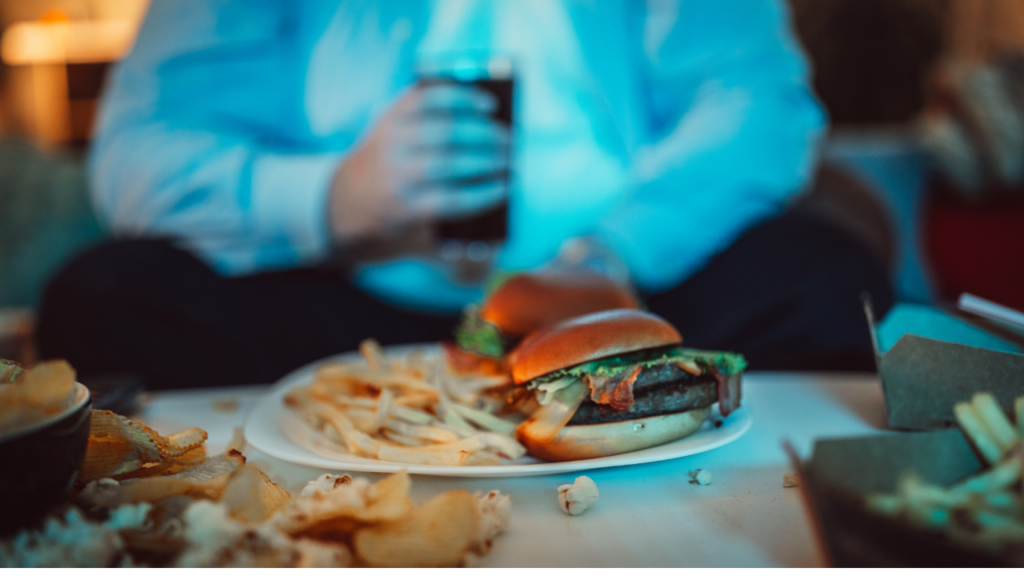
In today’s society, many of us have either been on a low carb diet or known someone who has.
What’s the deal with low carb? Why’s it all the rage for losing weight? Why have carbs been turned into an evil food group that is certainly destined to kill us?
Carb History in America
In the late 1950’s, a doctor by the name of Ancel Keys presented findings to the American Heart Association that would permanently change (and massively impact) the American diet.
Dr. Keys analyzed the dietary habits of 7 different countries and came to the conclusion there was a positive correlation between the fat in one’s diet and the prevalence of heart disease.
With that conclusion, he recommended to AHA that the American diet should be low in fat. And in 1968, AHA adopted this recommendation as its guiding principle for how American’s should eat.

Food making companies jumped on this new diet trend.
To serve the American public and their need for consumption, as well as to keep processed foods palatable, fat was replaced with sugar.
From 1958 to 1980, the American diet’s sugar intake increased from 70 pounds to over 100 pounds per year. This trend continued into the 90’s. Grocery store shelves were lined with Snack Wells and high sugar cereals.
However, there were those that started questioning if this diet was in fact the right way to be going.
In the early 70’s, Dr. Robert Atkins introduced the idea that carbohydrates were what contributed to weight gain, and that by completely restricting this food group, individuals could achieve easy weight loss.
He showed that diet followers could be satisfied with consuming a diet high in bacon, cheese, and protein, and that in turn the body, by being deprived of carbohydrates, would be forced to use body fat as an energy source, whereby the diet follower would lose weight.
The timing was perfect, as many Americans were feeling deprived from what the government was espousing as the “best” diet for them. Skip the bacon and have a bowl of Kelloggs cereal for breakfast.

And so the carbohydrate controversy began.
At the same time these diets were being introduced, Americans were becoming more sedentary thanks to modern conveniences, working more, and eating more processed foods as a result of the low fat recommendations.
Vegetable oils and high fructose corn syrup were in over 90% of the processed foods Americans were eating. TV dinners became common place. Work hours were on the rise, and an estimated 30% of the American population smoked cigarettes.
From the 1960’s to 1970’s, the population of Americans who were overweight increased from 10 to 15%. The percentage rose to over 30% by 1990.
It seems like carbs could be the problem, right?
Unfortunately, humans are holistic creatures. Which means that everything we do has the potential to impact everything else.
Whole food carbohydrates versus refined sugar and high fructose corn syrup are completely different animals. Consuming sugar in an inflamed state (chronically under slept, over worked, undernourished) has a completely different impact on the body than eating a banana before a workout.
Here are some very interesting health statistics:
- From 1942-2013 the amount of sleep the average American adult gets went DOWN by 1.1 hours per night. In 2020 the average adult reported getting less than 7 hours of sleep per night.
- From 1940 to present we have seen a steady decline in sun exposure as well as a decrease in Vitamin D levels.
- Only 22.9% of Americans get an adequate amount of exercise.
- Just 1 in 10 Americans report consuming the recommended amount of vegetables.

So are carbohydrates really to blame?
Or is it an unhealthy lifestyle, where we spend less time moving, less time outside, less time sleeping, and more time eating foods that don’t actually provide nourishment?
It’s estimated that the majority of individuals in America today who are overweight are also nutrient deficient. They’re literally consuming foods that contribute to weight gain while not providing their bodies with what they need to function well.
Now, for the fun part.
By approaching weight loss and body composition changes from a “low carb” angle, more often than not you set yourself up to be in a diet/deprivation cycle.
This means that you deprive yourself for a certain amount of time, perhaps lose some weight, only to lose it in a moment of “weakness” and going off the rails.
Things like hormones, lack of sleep, stress, actual hunger, all set you up to want to eat carbs. If you’re depriving yourself, making them in to something bad, you will likely end up in a situation where you feel like you can’t control yourself around them.
This is ESPECIALLY profound if you’re a CrossFitter, as this sport uses mostly carbs as energy. Not to mention studies that show women do better overall consuming more carbs!
Instead of fearing carbohydrates, what if instead you chose to eat the best sources of carbs for your body, based on how active you are and what your body needs?

What if you fueled yourself consistently with things like whole fruits, potatoes, brown AND white rice (easy to digest and great for pre/post fitness), yams, sweet potatoes, squash, even *gasp* bread??!!
What if you did this with a balance of veggies (3- 5 servings per day!), adequate protein (a minimum of .7g/LB of bodyweight), daily movement (30-45 minutes of walking/running/lifting weights), and LOTS of sunshine.
Did you know that consuming an adequate amount of carbs, even having a carb rich snack before bed, can help you sleep?
Imagine how good you could feel with more carbs in your life!
Carbs are not the problem, it’s our current way of living that’s the problem. Eating a cookie every now and then won’t hurt you. Drinking soda every day while not moving your body and spending lots of time in a stressed state WILL hurt you!
Questions? Comments? What do you struggle with regarding health and fitness?
Did you know that Coach Shawna runs an 18 Week Nutrition Course with 3 other Precision Nutrition Certified Nutrition Coaches? Check out HERE for when the next one launches!
